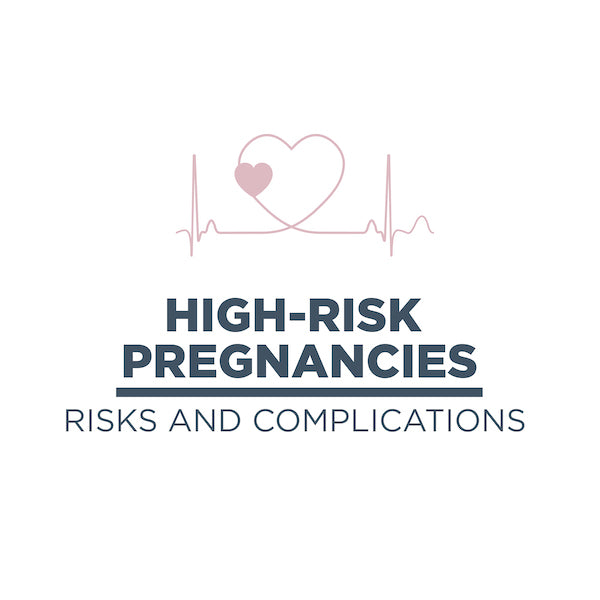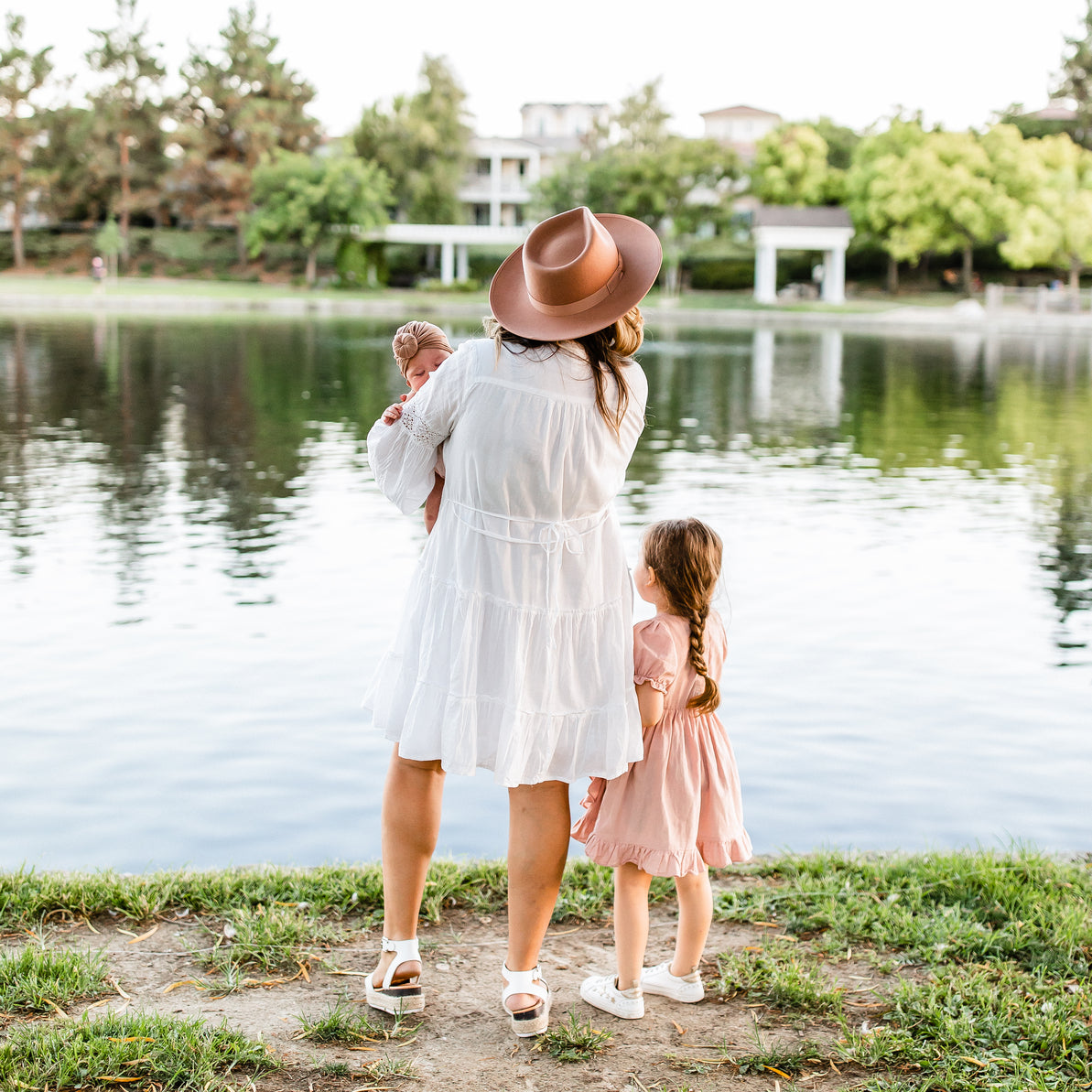
DR. RAD High-Risk Pregnancy

Editor: Rebecca
Dr. Steve Rad is an obstetrician-gynecologist and maternal fetal medicine specialist at Cedars Sinai Medical Center. Here, he talks to us about the ins and outs of his job, his wife’s own experience with a high-risk pregnancy, and the advice he has to women going through a similar experience.
Q: Why did you get started in this field?
A: The decision was easy. The first week of medical school, I had the opportunity to shadow the labor and delivery unit. From my first delivery, I knew I wanted to become an OBGYN. Seeing life being brought into the world was something very unique and special, and I couldn't imagine any other medical specialty that gets to be a part of that process.
Q: What is a high-risk pregnancy?
A: A high-risk pregnancy is any pregnancy that requires extra care and is non-routine. You have a complication from a previous pregnancy; you're currently pregnant and the fetus has a complication; you learn that the fetus has a birth defect. We also specialize in multiple gestation like twins, triplets and more. A maternal fetal medicine subspecialist takes care of two patients at once: the mother and the fetus.
Q: How do you monitor a high-risk pregnancy?
A: It depends on what the condition is. But one of the most common tools we use is the ultrasound, as well as monitoring how the pregnancy is progressing overall. Of course, we use labs and have physical exams with the patient. It’s about making sure the mother is OK as well as the fetus. It can be as frequent as several times a week or even on a daily basis. Some of the most common things that we see are pregnancies that are complicated by diabetes, preexisting diabetes, preexisting high blood pressure, and other maternal cardiac abnormalities.
Q: You find out you’re pregnant and you know you’re high risk. What should you do first?
A: The first thing you should do is see your doctor. The important part is the sooner you seek care and the more compliant with care you are, then the better the outcome.
Q: Do you find that women with preexisting conditions come to you when they’re planning to get pregnant?
A: Absolutely. We do what’s called a pre-pregnancy consultation. We do recommend women who know they are high-risk to seek care before they become pregnant. Optimizing your health beforehand is key.
Q: What do the visits entail?
A: It really depends on what condition you're talking about. Some high-risk pregnancies require visits monthly, some every two weeks, some weekly, and some even more frequently. We take vitals, examine things like blood pressure and blood sugar levels, and if her condition is affecting the baby, etc. We may also do a non-stress test and monitor the baby’s heart rate.
Q: When a woman comes to you and is high risk, how do you help them with the fear and anxiety that may come from that?
A: It’s important to take someone with you to the visit so they can take notes. In general, it’s nice to have a support system—whether that’s a therapist, friend, or family member—to help you. There are also a lot of books you can read that have good info about coping mechanisms.
Q: What does it look like when you’re giving birth in a high-risk situation?
A: The hardest part is getting to the actual birthing experience and keeping your pregnancy as long as possible, as safely as possible. But once you’re at that point, it doesn’t have to be different than a normal pregnancy. It’s more about getting safely to that point. However, if there’s any abnormality during the birthing process, you’ll need more monitoring. Definitely having a support team with you is the most important, whether that's your partner or friend or family member; a doula or a midwife; that can all improve your birthing experience. There are classes and ward tours you can take so everything is a little more familiar to you.
As soon as you’re done with the birth and the baby is in the neonatal ICU, you’re kind of feeling unsure. The first few days, especially the first week or two, can be an adjustment. You’re constantly looking for updates on how the baby is doing while also breastfeeding, pumping, etc. What can reduce that anxiety is speaking to the neonatologist and pediatricians ahead of time, and maybe even getting a tour to learn more about that process.
Q: I know that you have a personal concierge service. Can you tell me more about that?
A: The reason I developed my own center [The Los Angeles Fetal Maternal Care Center] was because I wanted to be able to spend more time with my patients. The way a lot of healthcare is going is limiting the amount of time you have with your patients, so I wanted to be able to spend more time with them, especially since those at high-risk can be complicated. I feel that in order to take the best care possible of the mother and the baby is to explain things to them and make sure they’re healthy. There’s always someone available 24/7—they have full access to us.
Q: How has COVID affected what you’re doing?
A: The pandemic has been very difficult on all healthcare specialties. In some cases, the partners can’t see the baby and doctors are remotely monitoring patients. We only see one patient at a time and have a lot of precautions in place at the office.
Q: Your wife had a high-risk pregnancy. Would you talk about your personal experience with that?
A: Yes. I am a new father now. They're five months old … two twin (non-identical) girls. One actually looks like me and one looks like my wife. But we had a very high-risk pregnancy. And so, I got to experience everything firsthand. And I have to tell you, it's very different. After that experience I can relate to my patients a lot more.
At 30 weeks, my wife’s water broke, which is very early. There was a lot of fear and anxiety on the way to the hospital. Even though I do this every day, I was crying on the way there. I get to labor and delivery with all the nurses I’ve known for many years, but at that point I wasn’t a doctor anymore, I was a father and a patient. The babies were in the neonatal ICU for two months, and at that time, they weren’t allowed to have visitors. That was very difficult—not being able to have family or friends come visit the baby or be there with you. I really have a whole new perspective for what I do.
Q: How easy is it for a woman to find someone like you that’s so specialized?
A: In general, there aren’t many specialists. Some cities are more saturated than others. A lot of people have to drive far or even fly out to see someone, so it can be difficult.
Q: You have some high-profile patients. But in today’s climate, I almost feel that at-home service is something all women would love.
A: High profile patients are also normal people. This idea of them wanting home visits or the private care because they're spoiled is absolutely wrong. The reason is really for their privacy and they can't, unfortunately, have that privacy otherwise because every time they come out of the house, they're being followed. We have more and more interest from patients wanting to have that same experience because of COVID or just to have their partner or other family members with them. Home births in general have become more common due to safety and risk of exposure.


